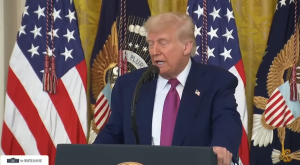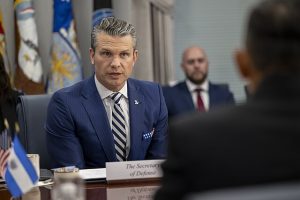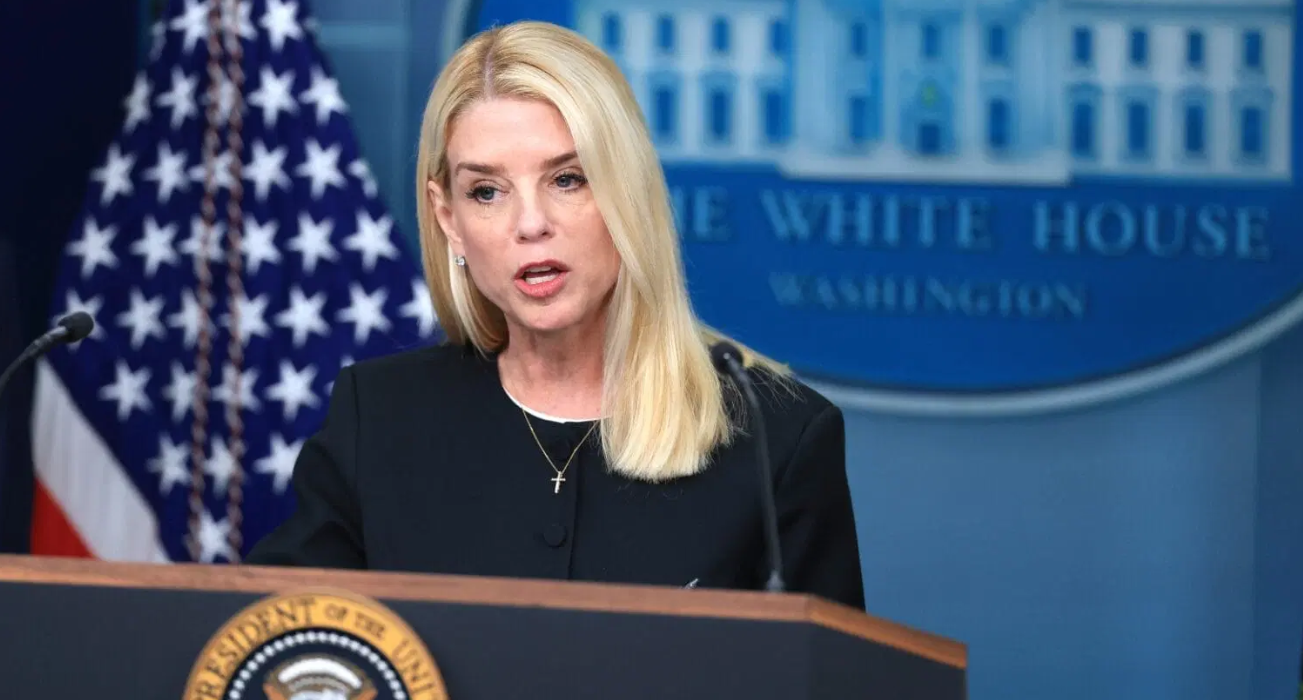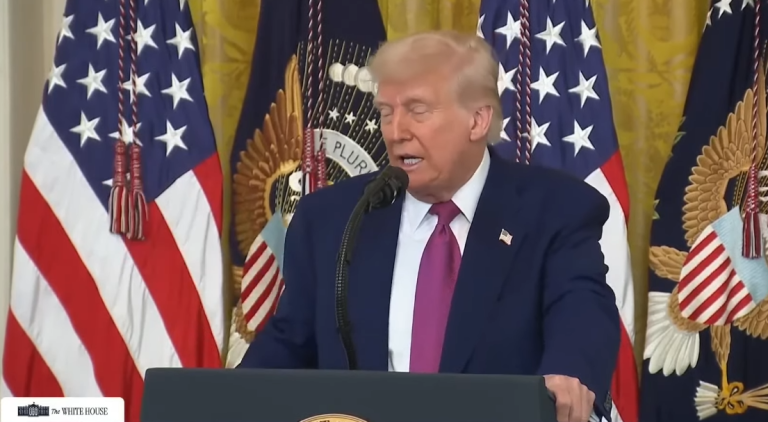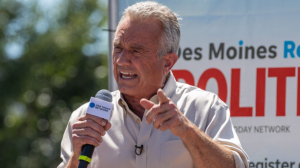Financial Secrets, Psychic Payments, and a Political Storm Brewing in Massachusetts
One of Massachusetts’ most recognizable Democratic lawmakers has found himself at the center of a growing federal scandal—one that involves tens of thousands of dollars in missing funds, questionable personal spending, and a federal crackdown that few saw coming.
In a political climate already under scrutiny for ethics violations and corruption, the situation has added fuel to the debate over accountability among public servants. What started as murmurs of financial mismanagement has escalated into a full-blown legal firestorm. The latest federal filings offer a glimpse into just how deep the allegations run.
Mounting Pressure From Federal Prosecutors
For months, investigators quietly gathered evidence—bank records, internal emails, wire transfers—tracing unusual financial activity linked to a prominent figure in Massachusetts politics. What they found would set off alarm bells not just in legal circles, but across the statehouse.
By July, federal prosecutors had submitted new filings requesting stricter pretrial conditions for a sitting state lawmaker. According to the U.S. Attorney’s office, these restrictions weren’t arbitrary—they were a direct response to alarming financial behavior that prosecutors say could continue unless the court intervenes.
Among the proposed conditions: a strict ban on gambling, a cap on credit card usage, and a prohibition on opening new lines of credit over $5,000 without court approval.
Gambling, Debt, and Alleged Deception
Court documents reveal that the lawmaker in question was under severe financial strain, despite holding two well-paid positions. He reportedly earned up to $81,600 as the executive director of a major industry group, in addition to a $100,945 annual salary from the Massachusetts State Legislature.
And yet, he was allegedly behind on his mortgage, carrying thousands in credit card debt, and frequently overdrawing his bank account.
But the red flags didn’t end there. According to prosecutors, the politician used money not only to cover personal bills and fund his political ambitions, but also to pay for psychic services. The details, while bizarre, point to a pattern of erratic and unauthorized spending—one that triggered an internal review and federal probe.
The government now alleges that the defendant went to extraordinary lengths to hide the fraud—allegedly creating fake personas and fabricating documents to mislead colleagues and investigators.
Public Arrest and Official Indictment
It wasn’t until late July that the full scope of the allegations became public.
Christopher Flanagan, a Democrat representing Dennis Port, was arrested and charged with five counts of wire fraud and one count of falsifying records. The Department of Justice (DOJ) confirmed the arrest in a press release that described the case as a “calculated breach of public trust.”
According to federal prosecutors, Flanagan embezzled $36,000 from the Cape Cod Home Builders Association (HBA), where he served as executive director, between November 2021 and January 2023. He allegedly carried out the theft via five wire transfers and used the funds to cover a wide range of personal and political expenses.
In court, Flanagan pleaded not guilty to all charges and was released under conditions that required him to either maintain his current employment or seek new work. But the government soon pushed for tighter restrictions, citing his continued financial instability and past behavior.
Flanagan’s attorney, Greg Henning, claimed the restrictions on gambling and high-credit purchases were already part of the original agreement and were simply formalized in the latest filing.
Federal Agencies Speak Out
In a statement posted to the DOJ’s official site, U.S. Attorney Leah Foley minced no words:
“Today’s charges against Massachusetts State Representative Christopher Flanagan reveal an appalling breach of public trust. He allegedly stole money and then went to extraordinary lengths to cover it up, going so far as to fabricate fake personas to mislead those who questioned his conduct.”
“This alleged scheme was calculated on every level. No one is entitled to power by way of fraud, and the people of Massachusetts deserve better.”
The fallout didn’t end there. Officials from multiple federal agencies echoed Foley’s condemnation.
Ketty Larco-Ward, Inspector in Charge of the U.S. Postal Inspection Service’s Boston Division, emphasized that elected officials must not be allowed to “play by different rules.”
“Flanagan’s egregious betrayal to his positions of trust and his deplorable actions of lining his own pockets for personal or political reasons are unacceptable.”
From the IRS’s Criminal Investigation Division, Acting Special Agent Thomas Demeo reinforced the federal commitment to rooting out corruption:
“The indictment of Christopher Flanagan demonstrates IRS – Criminal Investigation’s commitment to rooting out public corruption at all levels of government.”
Political Fallout Looms as Case Develops
The news has rocked Massachusetts’ Democratic establishment and sparked intense speculation about what Flanagan’s indictment could mean for other investigations. Some state lawmakers have quietly distanced themselves, while others are reportedly preparing for ethics inquiries or audits in their own districts.
For Flanagan, the road ahead looks steep. While he maintains his innocence, the weight of federal charges, coupled with intense media scrutiny, threatens to derail both his political future and the reputation of those in his orbit.
As the court proceedings move forward, residents across the state are left asking the same question: How many more cases like this are hiding in plain sight?

Emily Johnson is a critically acclaimed essayist and novelist known for her thought-provoking works centered on feminism, women’s rights, and modern relationships. Born and raised in Portland, Oregon, Emily grew up with a deep love of books, often spending her afternoons at her local library. She went on to study literature and gender studies at UCLA, where she became deeply involved in activism and began publishing essays in campus journals. Her debut essay collection, Voices Unbound, struck a chord with readers nationwide for its fearless exploration of gender dynamics, identity, and the challenges faced by women in contemporary society. Emily later transitioned into fiction, writing novels that balance compelling storytelling with social commentary. Her protagonists are often strong, multidimensional women navigating love, ambition, and the struggles of everyday life, making her a favorite among readers who crave authentic, relatable narratives. Critics praise her ability to merge personal intimacy with universal themes. Off the page, Emily is an advocate for women in publishing, leading workshops that encourage young female writers to embrace their voices. She lives in Seattle with her partner and two rescue cats, where she continues to write, teach, and inspire a new generation of storytellers.

